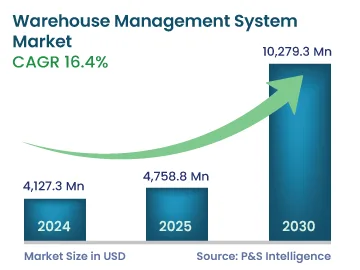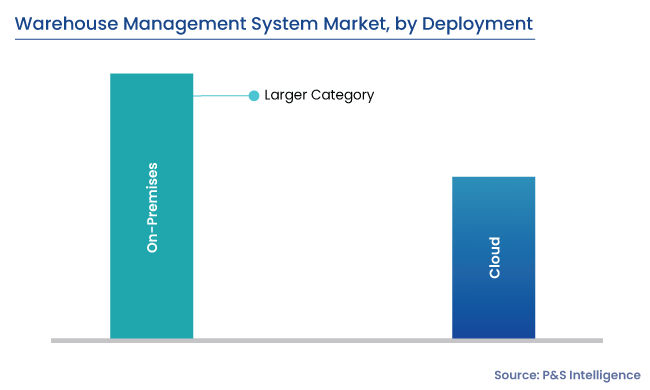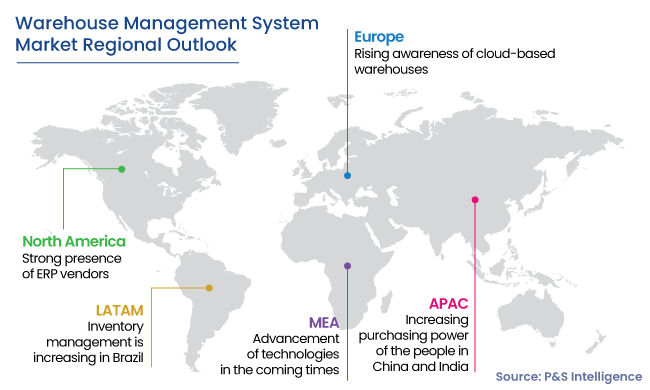Warehouse Management System Market Future Outlook
The warehouse management system market will generate an estimated revenue of USD 4,127.3 million in 2024 and witness a CAGR of 16.4% during 2024–2030, to reach USD 10,279.3 million by 2030. The market is driven by the rising adoption of cloud-based and mobile WMS applications that integrate the latest technologies and focus on sustainability. This makes them useful in the areas of vehicle management, logistics, and medicine storage.
Cloud-based WMS offers flexibility, cost-effectivity, and scalability, which allows businesses to maintain their operations without major investments. Further, the rising adoption of smartphones and tablets has boosted the development of mobile WMS applications as they enhance the warehouse staff's overall operational agility.
Nowadays, WMS is being integrated with the latest technologies, such as machine learning (ML), the internet of things (IoT), and artificial intelligence (AI), for better productivity. IoT activates sensors that provide real-time data on inventory levels, whereas AI and ML enable predictive analyses for meeting the increasing demand for the products stocked in the godown.
The system automates, improves, and assists the processes and operations conducted at such places. This software helps warehouses with different tasks, such as automatically processing orders, handling raw materials from the point of origin to their destination, and managing the overall supply chain. Additionally, many key players have started investing in software that enhances warehouse operational efficiency and user experience.





